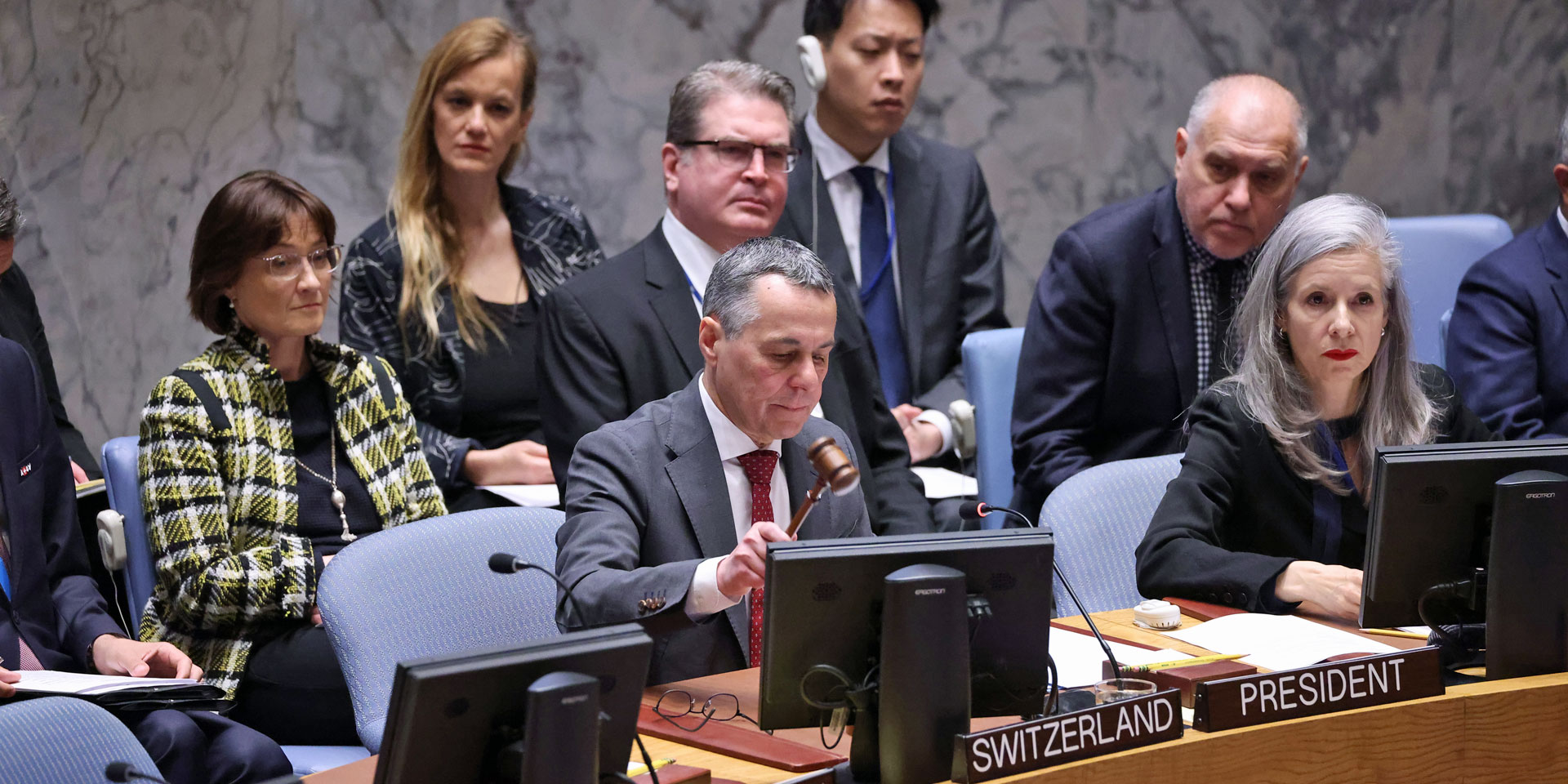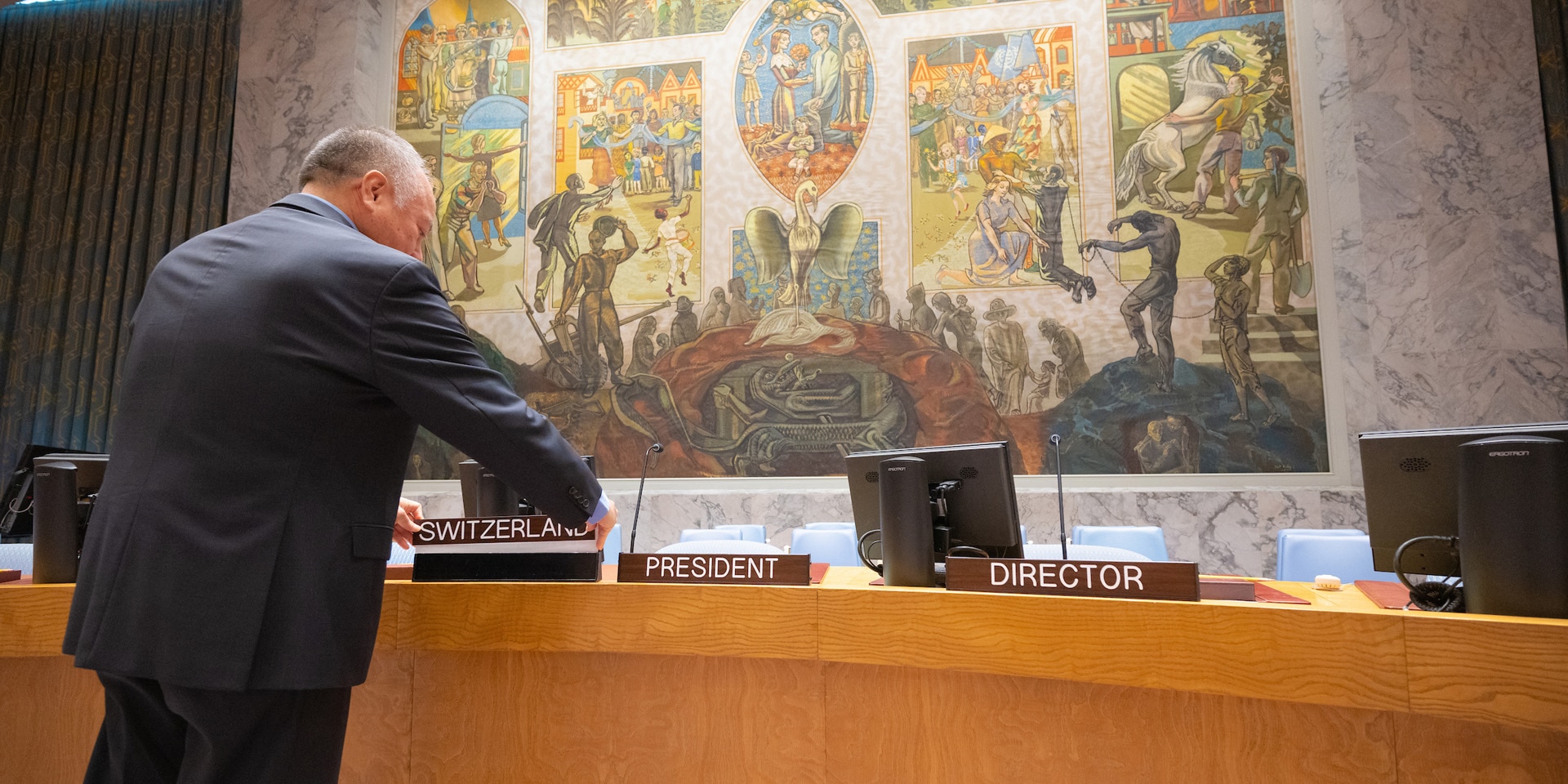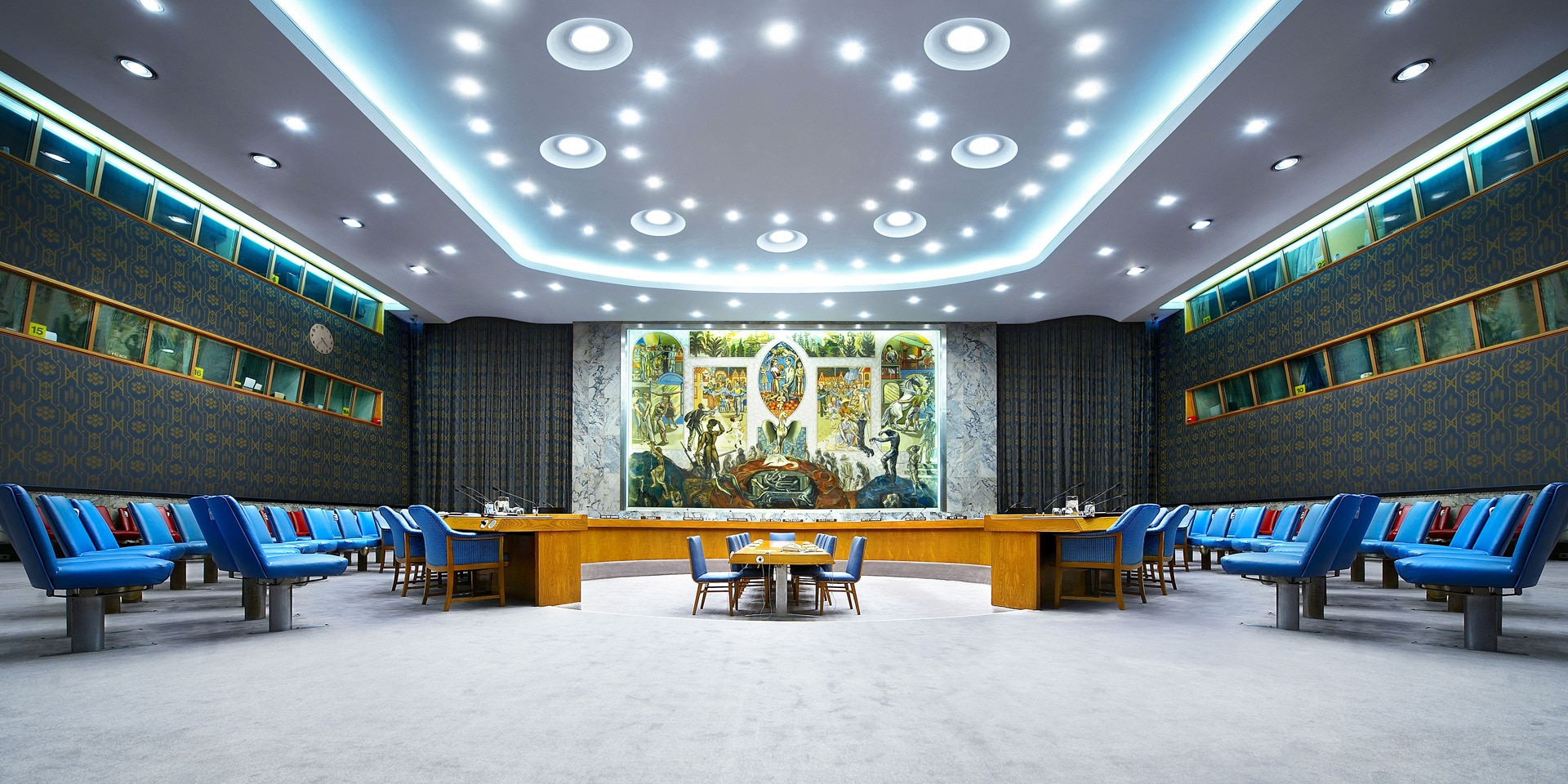Retrospective on the first Swiss Presidency the UN Security Council
“A plus for peace” – this was the slogan of Switzerland’s candidacy for the United Nations Security Council. The first ever Swiss presidency of the Council last May was a great opportunity to put this into practice. In a tense geopolitical context, Switzerland chaired over 25 formal meetings and made use of its bridge-building skills. And although the presidency is mostly an organisational role – similar to that of a master of ceremonies – its holders can add color to the Council’s agenda. Switzerland did so by dedicating the month of May to trust and the protection of civilians.
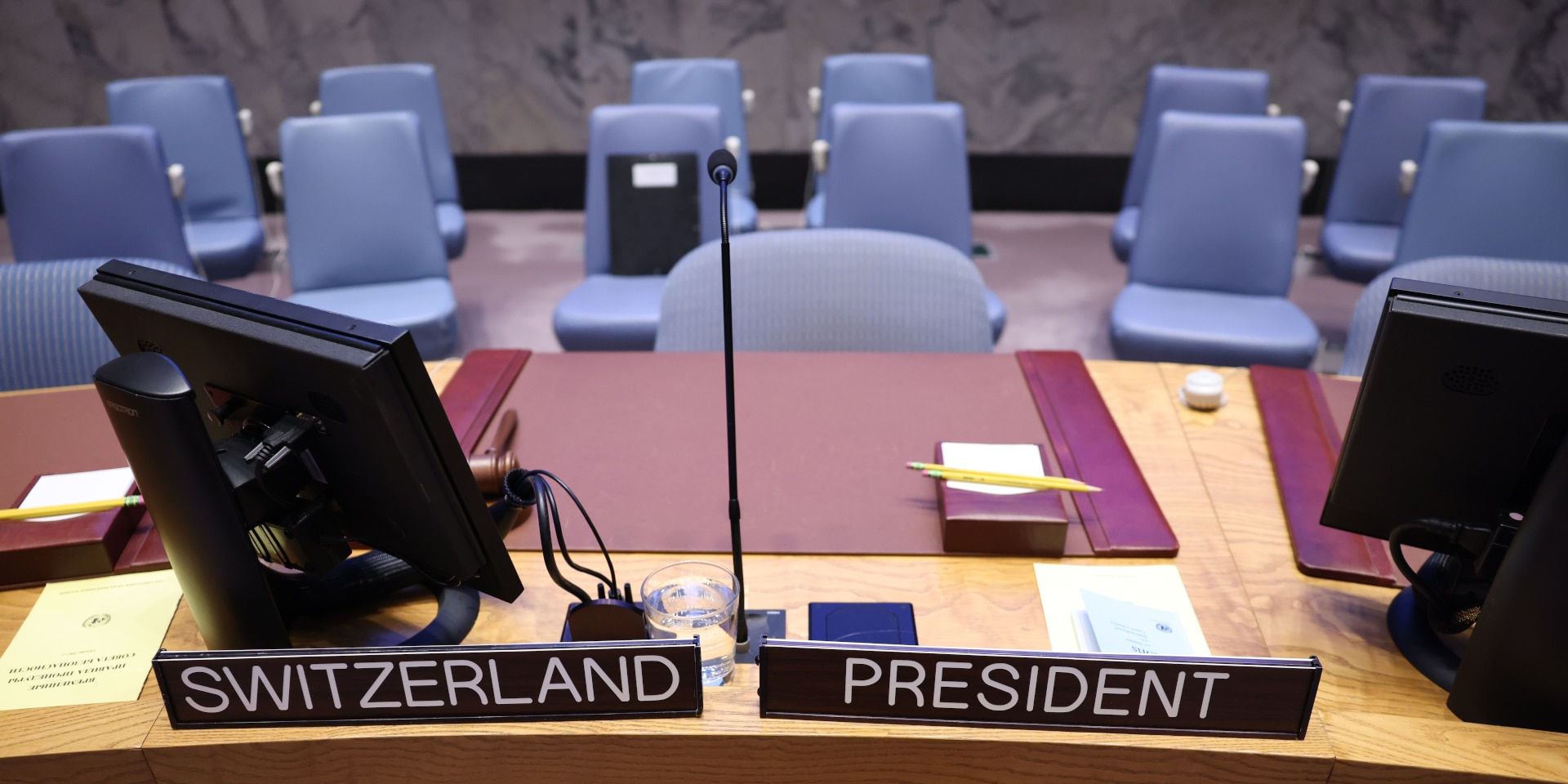
Die erste Schweizer Ratspräsidentschaft im vergangenen Mai war eine gute Gelegenheit, ihren Slogan «Ein Plus für den Frieden» in die Praxis umzusetzen. © FDFA
Working methods: kicking-off the presidency in a constructive way
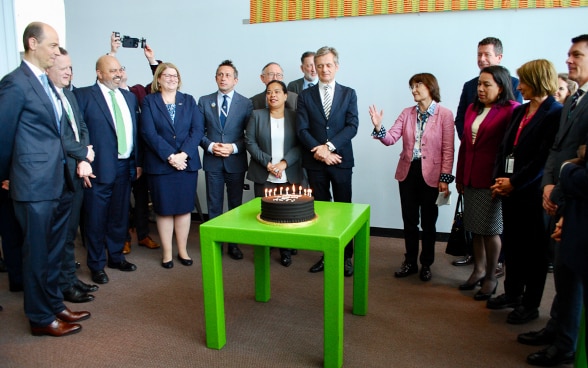
In line with its Security Council priority of "enhancing effectiveness", Switzerland strives to improve the Security Council's working methods. Greater transparency and accountability, as well as the inclusion of non-Council members, are the heart of this commitment that goes back a long way. The founding and coordination of the “Accountability, coherence and transparency” (ACT) group marked an important milestone on this path. Coincidentally, the group celebrated its 10th anniversary on May 2, kicking off the Swiss presidency on a constructive note. On this occasion, Security Council Report, Liechtenstein and Switzerland organized a discussion on the evolution of Security Council working methods and on the implementation of the so-called ACT “code of conduct”, which now counts 129 signatories committing not to vote against a credible draft resolution aimed at preventing atrocity crimes.
In parallel to prior engagements, Switzerland sought to conduct the work of the Council in a transparent, impartial and consultative manner during its presidency, and to provide timely and transparent information to the public. Two innovative Swiss approaches in that regard were its interactive, up-to-date program of work on its aplusforpeace.ch website, and its use of new technologies. Indeed, new technologies, and more specifically, Artificial Intelligence provided by Geneva-based Diplo Foundation, were used to analyze the discussion and outcomes of one of Switzerland's signature event on "Futureproofing trust for sustaining peace".
Futureproofing trust with norms, inclusion and facts
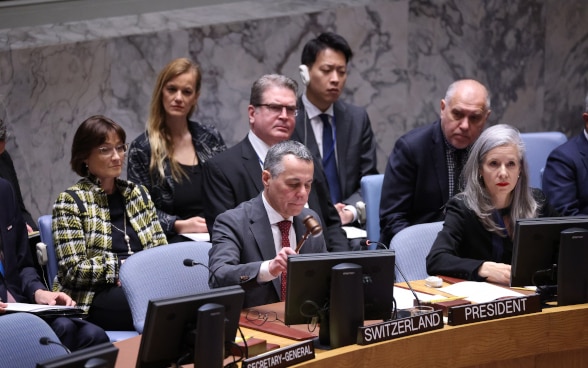
“Where there is trust, anything is possible.” With this statement, Foreign Minister Ignazio Cassis set the tone during the first signature event of the month on May 3, which focused on building for sustaining peace. Three briefers dissected three key ingredients of trust, namely norms (Volker Türk, High Commissioner for Human Rights), facts (Professor Funmi Olonisakin, Project partner of the Geneva Science and Diplomacy Anticipator Foundation GESDA) and inclusion (Cynthia Chigwenya, African Youth Ambassador for Peace). In total, 68 states participated in the debate. Most of the speakers agreed that trust in institutions is a key enabler of sustainable peace. Youth briefer Cynthia Chigwenya urged states to make political institutions and processes “luring” again to young people, whose trust in institutions is dwindling.
Strengthening the voices of women and civil society
Inclusion is key for building trust, resolving conflicts and promoting sustainable peace, which is also a priority for Switzerland's Council membership. Women in particular are powerful actors of change – in every society. Without them, sustainable peace is not possible. The same applies for the local populations affected by conflict. Yet the voices of women, especially from civil society, are still not heard often enough in the Security Council. Switzerland worked hard to change this during its presidency – with success: 54% of all briefers addressing the Security Council in May and all of the 9 civil society briefers were women. The women civil society representatives addressed the Council on issues such as the security implications of climate change in the Sahel region or the link between conflict and hunger. It was a particular success that, for the first time in a year, a civil society representative was heard at a Council meeting on Yemen.
Protecting civilians: breaking the circle of conflict and hunger
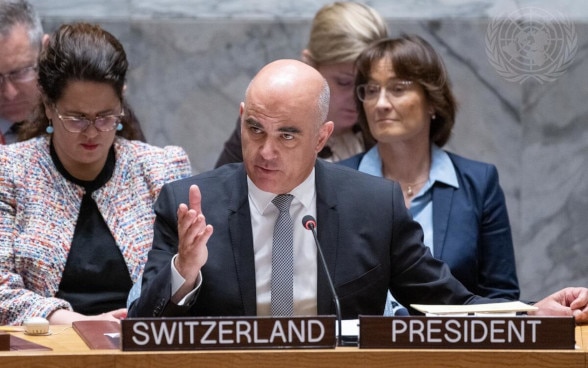
“The Protection of civilians is an emergency. Respect for international humanitarian law is an imperative”, stressed the President of the Swiss Confederation Alain Berset at the annual debate on the protection of civilians in armed conflict (PoC) in New York on May 23. Coincidentally, the UN focuses on the Protection of Civilians (PoC) in May each year - one of Switzerland’s priorities for its Security Council membership. The annual debate on PoC was thus another anticipated moment of the presidency. Chaired by President Alain Berset, the debate highlighted concrete actions to break the vicious cycle between conflict and food insecurity. This formal meeting of the Council was attended by a large number of high-level participants, notably the Presidents of Mozambique and Malta. The debate highlighted the importance of international humanitarian law in armed conflicts, an issue that Switzerland, as depositary state of the Geneva Conventions and host state of the ICRC, has long been strongly committed to. In addition, Switzerland was also very active in the various side events organized during PoC week. Indeed, as one of its co-founders, Switzerland co-ordinated PoC Week each year since 2018 together with the United Nations Office for the Coordination of Humanitarian and civil society organisations.
75 years of UN peacekeeping
The fourth week of May was also marked by the 75th anniversary of UN peacekeeping. On May 25, Vice President of the Confederation Viola Amherd honoured peacekeepers killed in service during a wreath-laying ceremony at UN Headquarters, led by the Secretary-General. She then chaired a briefing in the Security Council on Peace and Security in Africa, which started with a minute of silence for fallen peacekeepers.
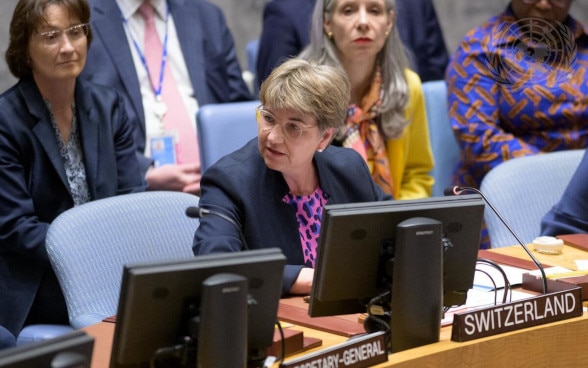
Making a statement on behalf of Switzerland, the Head of the Federal Department of Defence, Civil Protection and Sport highlighted that peace missions are “an essential instrument of this Council for peace and security in the world”. She welcomed a proposal to use certain UN contributions to finance peace support operations of the African Union (AU), while calling for a clear allocation of responsibilities between the two organizations. She further stressed the need for human rights compliance and regional ownership of peace operations.
Vice President Amherd also presided over a closed high-level panel discussion on the future of UN peacekeeping, organised with the International Peace Institute. Under-Secretary-General (USG) for Peace Operations Jean-Pierre Lacroix, Special Representative of the Secretary-General (SRSG) Bintou Keita and Major General Patrick Gauchat addressed the audience.
Spotlight on Europe
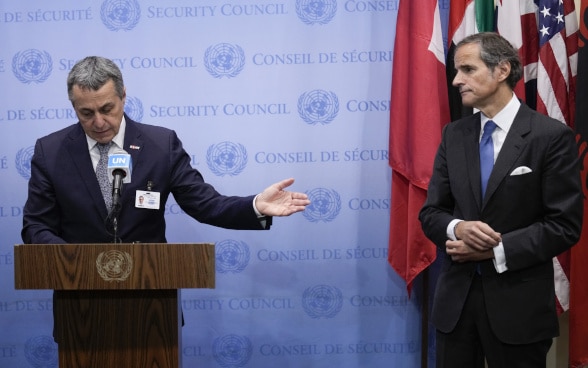
Ever since the start of Russia’s military aggression against Ukraine, Europe has inadvertently regained a prominent place on the Security Council’s agenda. In May, the Council held three formal meetings on the situation in Ukraine. On May 30, Swiss Foreign Minster Ignazio Cassis chaired a discussion on nuclear safety and security in Ukraine, with a particular focus on the nuclear power plant in Zaporizhzhia. The Council members expressed their support for the work of the International Atomic Energy Agency (IAEA). The Council meeting of 30 May is at the same time an expression of confidence in Switzerland as a bridge-builder and for the protection of the civilian population. It is linked to Switzerland's flagship events during the Presidency, in which it set thematic accents along the priorities defined by the Federal Council. The open debates of 3 and 23 May focused on building mutual trust for sustainable peace and the protection of civilians.
On May 4, the Council was briefed by the Chairman-in-Office of the Organization for Security and Cooperation in Europe (OSCE), Bujar Osmani. The meeting was an opportunity to highlight the successes and challenges after 30 years of co-operation between the OSCE and the UN, notably with regard to the military aggression of Russia against Ukraine.
Setting the course for Peace
“With the war in Ukraine and conflicts in Sudan between the military factions, the Council, yes, faces challenges, but also it faces the opportunity to set the course for action”, youth representative Cynthia Chigwenya reminded the Council on May 3. And rightly so. Switzerland has tried to set the course during its presidency by consistently advocating for full respect for universal norms, clear facts on the table and inclusive decision-making. These are the ingredients for trust – the catalyst for common action.
Looking ahead to another 19 months as a Council member and a second presidency in autumn 2024, Switzerland will continue to build bridges and trust.

